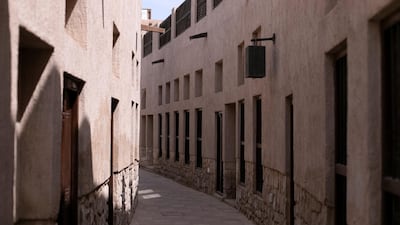Whether it is true that we use 10 per cent of our brain or not, we certainly limit ourselves to experiencing 10 per cent of our culture. This is best showcased in our apparently constant need to redefine the term “culture”. The problem with such fluid questions, however, is that they are unlikely to generate solid answers.
The 10th-century poet Al Mutanabbi says in a poem: “Nothing in knowledge is proper ... if the daylight calls for evidence, too.” Like many scholars of history and literature, Al Mutanabbi was observant in defining Arab culture’s originality and abundance early on.
Among the first to explain Arab unity was the 19th-century Lebanese writer Shakib Arslan, who said: “Arabs have talent, resistance ... and a complete aptitude for everything that forms nations.” He was talking about how the lasting imprint of language and culture forms agile civilisations.
From as early as the 4th century BC up until the 1st century AD, historians, beginning with Herodotus, Agatharchides and Diodorus, were captivated by Arabia's rich palaces and divine scents.
A modern object, rich in fragrance, can be found at Al Shindagha Museum in Dubai: the enormous piece of oud wood stands more than a metre high and is on display behind a protective glass. The beauty of this object is that it originates from the earliest practices of hospitality and scent-making culture in the UAE and the region more broadly.
All cultures have definitive, lasting features. They are found in the earliest festivities of every past or present society, in values and in the grandest expressions of art.
The German philosopher Immanuel Kant, in his work on aesthetics, emphasised that “beauty is free from reason”; it is a pure moment of awe and delight. In this context, it is best to leave culture undefined, or as is said, let the meaning of the poem stay in the poet's belly.
These days, filmmaking in the Arab world offers a chance to participate in culture on a universal scale, particularly when viewers can separate the experience from their own thoughts and preconceptions. Studio Misr and Studio Nahas, two major forces of filmmaking in 20th-century Egypt, often captured emotions before thoughts, by amplifying the originality of the Arabic language through music, dialogue and imagination.

In 1956, the Egyptian-born film actress Taheyya Karioka used her culture as a means to stand out and be known. The star of Shabab Emraa (A woman’s youth), one of the greatest Egyptian films of all time, stunned the Cannes red carpet media when she was seen wearing a local traditional anklet and a customary semi-abaya (malhaf). For artistry to be conveyed, it must be natural, authentic and grand –just like the 28 kilograms of oud wood displayed in Al Shindagha Museum; a simple piece that represents the values of gatherings in homes, and the days when get-togethers were about perfume, poetry and stories.
Qal al Shaer (Says the Poet), a show on Majid TV produced in partnership with Anasy Media, the Arab League Educational, Cultural and Scientific Organisation and Abu Dhabi Media, revives the splendour and beauty of Arabic poetry as an entertaining children’s game show.
A sign of where the poetry memorisation stands and the strong hold language has with audiences young and old, is that the feedback was instant. In front of exceptional judges such as Humood Al Khuder, Hessa Al Falasi, and Mahdi Al Karz, and the presenter Ghaya, a very talented high school student, many familiar values are voiced in verses by a group of young contestants. Each episode has a distinctive tongue twister that gives the viewers a chance to make speech a game and language more playful.
When culture is self-explanatory, the task of defining it becomes less relevant. As Alia Al Shamsi, the manager of Cultural Programs at Louvre – Abu Dhabi, once said: “In different languages the meaning of culture changes; in the Arabic language it is not interpreted the same way as in English.”
Qal al Shaer is a small example of what can be accomplished by engaging with the cheerful side of culture and language, instead of questioning and theorising about them.

